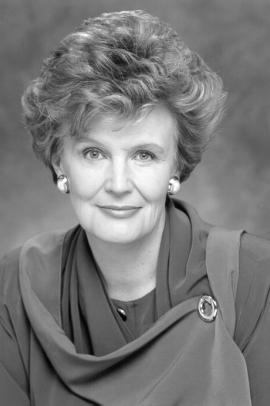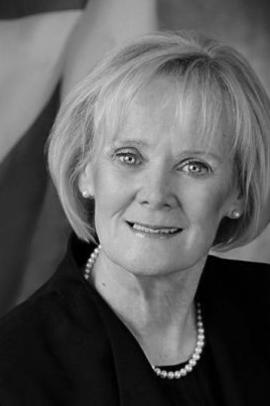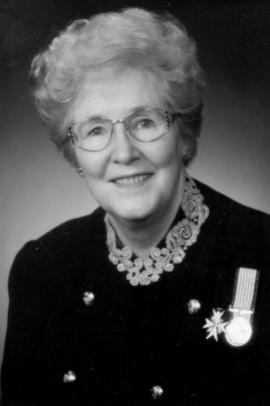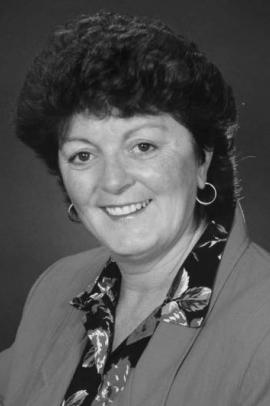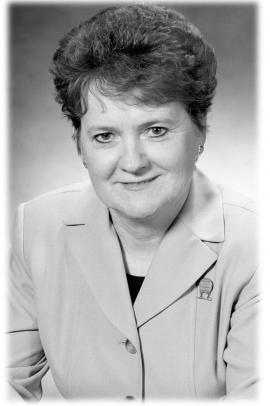Feisty is a word that easily described the Hon. Marion L. Reid.
Trailblazer is another, as she was the first woman Deputy Speaker of the Legislative Assembly of Prince Edward Island, its first woman Speaker, and the first woman Lieutenant Governor for the province.
Looking back, politics was always prevalent in her life, something that Reid attributed to her mother.
Reid was just nine years old when she attended her first political function.
“I just went with my mother because my mother thought I was kind of like her perhaps and I went to the political meeting,” she recalled.
“Many women would be in the kitchen doing things. My mother would be there because she would be going to move this nomination or do some speaking or whatever on whatever topic it was.”
Politics, for a young Reid, was simply part of her life.
“I always like politics, and I always liked meeting people. It is just the way I was.”
THE EARLY YEARS FOR MARION L. DOYLE
Born Jan. 4, 1929, Marion Loretta Doyle arrived in the world at a whopping 13 pounds, born to Michael and Loretta (Whelan) Doyle. She grew up in North Rustico, one of eight siblings, with five sisters and two brothers.
Her mother, Loretta, was herself a trailblazer, a fierce and determined woman who was heavily involved in her community, business and in politics.
Education was important in the Doyle household, as the matriarch was well educated and a school principal who told her daughters that an education could open many doors for them in the future.
“We all had to go to college because you don’t have any options as a woman if you aren’t educated,” said Reid. “There were no ifs, ands, or buts about it. You were going to college and you had to go to Prince of Wales and write the exams for three days. They were hard exams and many never passed.”
Loretta Doyle was someone that everyone admired, especially her daughter.
“She wrote every speech for anybody. She was a principal at the two-room school. She was very determined. She was tremendously capable" said Reid with great pride and with love for her late mother.
Reid’s father, Michael, a silver fox breeder who ran a sizable farm, was a quiet man who married Loretta late in life, at the age 38.
Soft-spoken, Michael Doyle rarely, if ever, had a harsh word for anyone, particularly his daughters. He left community involvement and politics to his wife, something that was quite progressive for the time.
“My mother was always political. She nominated Angus MacLean when he got into politics,” Reid said, referring to the man who would be Premier when she became a Member of the Legislative Assembly. “They always said if you get Mrs. Doyle to move the nomination you would get the nomination.
“She was a mover and a shaker.”
Her family’s businesses, coupled with her mother’s involvement in the community, instilled in Reid a desire to do more, and prompted her to roll up her sleeves and pitch in at home and in her community whenever possible.
There was always work to be done and no time for boredom when Reid was growing up.
“I often say I had often times been tired but I have never been depressed. I don’t know the meaning of that.”
MARRIAGE, CHILDREN AND POLITICS – A BALANCING ACT
After receiving her early education at North Rustico and Stella Maris schools, she was off to the Prince of Wales College from 1944 to 1946 to obtain her first-class teaching certificate.
At 17, she graduated from Prince of Wales College and immediately started teaching.
She married Lea Reid, a farmer, two years later in 1949.
“He was very kind. He could do most anything,” Reid said with great fondness, a soft smile crossing her lips as she remembered her late husband. “He had one of the first self-propelled combines that came to the Island. He loved machinery.”
Lea was affable, someone that everyone liked.
“He had a good sense of humour – and he could cook. Sometimes I would come home and there would be dinner ready.”
They had eight children – twins Maureen and Colleen, Kevin, Bethany, Mary Lea, David, Andrew, and Tracy.
Juggling a teaching career, home, marriage, and children was not always easy but Reid liked a challenge and thrived on being busy. With the exception of a few years’ leave when her children were young, she continued teaching while raising a family, doing so for 21 years.
Lea was always there to lend a hand.
“You just went with the flow, you know what I mean. We always had our own good meat, our own good food, and a large garden, that sort of thing. Nothing seemed to be a problem,” said Reid. “He was the one that read most of the stories to the kids because I would be busy doing something else."
In 1972, Reid returned to school as a student and earned a teacher’s certificate. She was determined to follow her mother’s footsteps and become a school principal.
Although she was teaching and working to further her education, there was always time for the children. She was a hands-on mother who loved to get on their level, often spending hours on the floor playing with the youngsters.
“I was so young myself. Sometimes I would drape three or four curtains and I would get under and be with them,” Reid recalled with a warm smile crossing as she reminisced about those days with her young family.
“They were always going to put everything back but they seldom did. I wasn’t going to growl about that. Why would you do that? It gave me a good hour of quiet.”
Reid’s love of politics never faltered during this time.
Never one to turn down an opportunity, Reid most often always said yes when asked to get involved behind the scenes politically.
Why did she think it was important?
“Well, they asked me,” she replied, her voice rising. “I just didn’t say no. I thought I would have to go to some meetings, and I love meetings and going to meetings and learning about things.”
Reid believed then, as she still does today, in seizing the day and taking every opportunity that comes along, sage words of advice she passed along to her eight children.
“Because you never know what it will develop into,” she said of her reasoning.
NOMINATION DETERMINATION
Reid fully credited Angus MacLean as being the person who brought her from the political backroom to the forefront as a potential candidate.
In 1977, MacLean wanted Reid on his team.
“Well, you know, it was Angus asking. My mother nominated him and he wanted me so I said yes.”
She first had to secure the Progressive Conservative’s party nomination to run in the dual-seat riding of 2nd Queens, a contest that the confident Reid lost by just a handful of votes.
The experience is one that taught her a valuable lesson, one she lives by until this day and passes along to others.
“You just don’t count your chickens before they hatch. You better believe that every vote counts.”
A year later, Reid went on to win the Progressive Conservative’s nomination in the nearby dual-seat riding of 1st Queens. Her running mate in that riding was Leone Bagnall, someone who became a lifelong friend and ally, especially when it came time to serve in the Legislative Assembly of Prince Edward Island.’
ANGUS’ GIRLS HIT THE CAMPAIGN TRAIL
Unfortunately, Reid and Bagnall, as well as the entire the Progressive Conservative party, came up short in the 1978 election, with Alex Campbell and his Liberals retaining power for a fourth consecutive term.’
The third time proved to be the charm for Reid after an election was called following Campbell’s resignation as Premier and Leader of the Liberal Party of PEI to take a seat on the bench of the Supreme Court of Prince Edward Island.
A provincial election was set for April 23, 1979.
For a third time in less than three years, Reid had to fight to win her party’s nomination, opting; again to enter the contest in the dual-seat riding of 1st Queens. She was the lone woman candidate among three men.
“I took my speech and, obviously, I set it right down and I said, ‘do you want a winner?’ Then I said ‘you are looking at one.’ That’s how I opened up.”
She won the nomination on the first ballot. Again, Reid and Bagnall hit the campaign trail, and their chances of winning looked good.
“We were known as Angus’s Girls, and they couldn’t wait for us to come.”
Doing the work, knocking on doors, shaking hands and rolling up your sleeves and getting down to business are keys in being successful in politics, offered Reid.
“I never believed in this business that somebody owes you something. They don’t owe you anything,” she added. “You work for everything you get. If you have potential and you feel you have something to give and that you can make a difference, go for it.”
Reid admitted, though, that women often have more considerations than men when it comes to the decision to pursue politics. Women can also be judged more harshly.
One of the greatest lessons she learned from her early involvement in politics was to be smart and to listen to what others had to say, particularly the voters.
Open mindedness is an asset, said Reid.
“Above all, be kind to people. If they have an opinion, you are not going to start arguing with them. Say I can see where you are coming from and I never thought of that and that is a very good idea.”
THE WIN, THE HOUSE, THE CHALLENGES
April 23, 1979, was a day that forever changed Reid’s life.
That day, she and Bagnall became the first women Progressive Conservative candidates elected to the Legislative Assembly of Prince Edward Island. Reid unseated Jean Canfield, the first woman elected to the Assembly.
“It was euphoria,” she recalled. “It was hard to believe and even harder for me to believe that I actually was now in the legislature.”
At 50 years of age, she was embarking on a new career. She took the oath of office on her and Lea’s 30th wedding anniversary.
Reid served three consecutive terms as Member of the Legislative Assembly for 1st Queens, becoming the first woman Deputy Speaker and, in 1983, the first woman Speaker of the House.
The post of Speaker was one Reid saw as a great honour.
“I had no desire whatsoever to be Minister of Education or something like that,” she said, adding she never regretted not sitting in cabinet. “That’s a lot of work, a whole lot of work. I didn’t want to be bothered with that.
“I think they felt that we have to give Marion something, so they asked me if I would consider the speaker. I said yes, I will, I will do that.”
She knew that going into the role as its first woman that some of the men in the assembly -- particularly those who very much opposed her appointment --would test and challenge her.’
The job of Speaker, though, was tough.
“Well, I can’t say that I ever enjoyed it,” admitted Reid, adding that one of the men in the House became so angry after being taken to task by the Speaker, whom he accused of favouritism towards her fellow PC member, that he smashed a desk. “That bothered me. Usually things don’t bother me, but you are a woman and I am telling you as a woman sitting up there they don’t care for that.”
Reid was highly regarded within her party, within caucus, and was admittedly fearless in the Legislature and in life.
She served under two Progressive Conservative Premiers, first MacLean and, following his resignation in 1981, Jim Lee, who would lead the party to victory in the 1982 general election, in which she and Bagnall retained their seats.
In 1986, the Progressive Conservative party would fall to the Joe Ghiz Liberals, putting Reid and Bagnall, who won their seats, in Opposition and Red in the position of Opposition House Leader.
While in Opposition, Reid was not afraid to speak her mind – or take others to task. That fearlessness garnered her respect among her colleagues, both men and women. She became a valued member of caucus.
“I had a very good reputation. I didn’t go looking for trouble or anything like that. The men would say, ‘Marion, get up and give a speech, we need some time to get this figured out’. There were ones that weren’t very good at speech making and I would be like, sure, I will fill in the time for you.”
MOVING HOUSE – PROVINCE HOUSE TO FANNINGBANK
After three terms representing 1st Queens, Reid sought a fourth term in 1989. Another Marion -- Murphy -- unseated the longtime MLA.
Looking back, Reid called the loss a blessing in disguise.
“I was defeated, but it was fortuitously. I became Lieutenant Governor, so there you go!”
The role of Lieutenant Governor, with its pomp and circumstance, suited Reid.
Her time in Fanningbank is one she looks on with great fondness, with its garden parties, hosting of dignitaries, receptions to honour outstanding Islanders, tours, teas and countless other events.
Reid was determined – and succeeded – with filling the office with dignity and warmth, casting aside partisan politics to take on the role as the Queen’s representative in the province, and was highly regarded by the public and the PEI media, as evidenced by one keepsake in particular.
“If you look up there on the wall, and I can hardly believe this, when I was all done The Guardian put at the top, Term of Endearment. It doesn’t get much better than that, does it?"
Reid’s historic term as Prince Edward Island’s 37th Lieutenant Governor, and the first woman to serve in the role in Atlantic Canada, ended on Aug. 16, 1995.
That July, her beloved Lea received a prostate cancer diagnosis, and, in April 1999, was diagnosed with bone cancer.
On June 29, 1999, Marion and Lea celebrated their 50th wedding anniversary. Days later, on July 6, 1999, he quietly slipped away, ending yet another chapter in Reid’s storied life.
THE PHOTO THAT MADE HISTORY
Reid’s time as Lieutenant Governor cemented her place in history as one of Prince Edward Island’s Famous 5.
The five women, in June 1993, gathered to pose for the camera. After a few quick clicks, they went about their day, tending to the business of the province with only a black and white photograph – and little fanfare – to remind them of the significant accomplishment for women in politics not only on Prince Edward Island but in Canada.
It would be the first and only time that women would hold all five positions of political power in the province, and in Canada.
“I could hardly believe it, to tell you the honest truth,” said Reid of the accomplishment. “I thought it was a wonderful thing to do, it was great.”
Some of the women in that photograph are lifelong friends, others acquaintances.
Reid is dismayed that the accomplishment she and the others achieved was never been replicated.
“I think it is very, very sad,” she reflected.
THE FUTURE OF WOMEN IN POLITICS
Politics today are not for the faint of heart and the critiques of politicians often harsh.
Most important in being an effective politician is to be self-aware and true to who you are, said Reid.
“Good politicians are there to help the people because that is who put them there, and they want to impact change.”
She feels that serving the people as an elected official has great importance.
“If you have a feeling that you would like to get involved, we need good people in politics.”
Looking back on her vast political career, one that started as a young girl growing up in rural Prince Edward, Reid said she would easily do it all again.
“Absolutely, absolutely,” she said with certainty and firmness in her voice. "I am so glad I did it and what was so good about it is here is my mother in a special care sanitarium and she is crippled and I was able to tell her I got elected."
“That was good. It was so good,” she said, her voice breaking before it trailed off.
Marion passed away June 22, 2023.
















